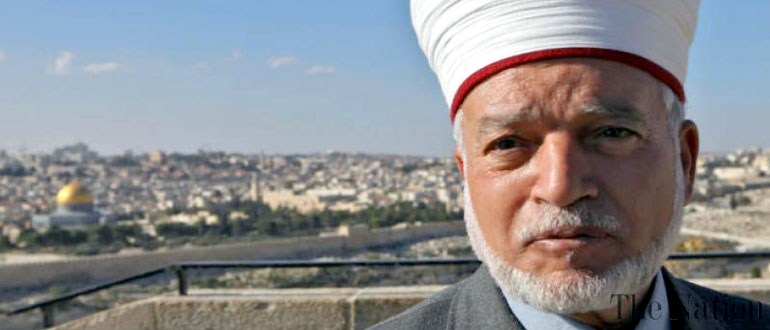He said the Israeli regime lets the Knesset pass any legislation without proper consideration, adding that the bill impinges on Palestinian religious freedom.
On Wednesday, the draft law to muffle amplified calls to prayer at mosques in East Jerusalem al-Quds and others parts of occupied Palestinian land won preliminary approval at Israel’s parliament. The bill still needs to pass several more readings.
During the voting session, prominent Arab Israeli lawmaker MK Ahmad Tibi, who is the leader of the Arab Movement for Change (Ta’al), tore up the proposal.
“Islam is stronger than all of you,” he shouted at other legislators from the Knesset podium.
Head of the Joint (Arab) List MK Ayman Odeh also described the measure as an attack on Israeli Arabs.
“This is an offensive against the Arab public, against the presence of Arabs [in Israel], against the Arabic language and against our existence in the region,” Odeh said. “The sound of the muezzin (who perform the call to prayer) predated the racists and will exist after the racists.”
Odeh was later ejected from the plenum for tearing up a copy of the proposed legislation, along with fellow Joint List MK Masud Ganaim.
MK Jamal Zahalka, also of the Joint List, denounced the bill as “a declaration of war on Islam.”
“This is a racist law whose only purpose is to hurt our community,” he said, adding that “what disturbs the supporters of this legislation is not the noise, but rather that the sound of the muezzin reminds them of the true identity of this land.”
Meanwhile, Jordanian Minister of State for Media Affairs Mohammad Al Momani said the legislation was particularly unacceptable in East Jerusalem al-Quds.
He added that the new law violated the peace treaty between his country and Israel by violating the Waqf’s rights to administer the holy al-Aqsa Mosque compound and regulate Muslim worship there.
Despite widespread criticism from Muslims, Christians and Jews across the occupied Palestinian territories against Muezzin Bill, it has been supported by Israeli Prime Minister Benjamin Netanyahu.
The Israeli premier had earlier said he would back the controversial legislation, adding that the calls to prayers made excessive “noise.”



